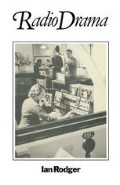Abstract
It is not advisable to study any form of creative activity without taking into account its social context and the practical conditions which to some considerable extent predetermine its method. This is especially true of drama, which must depend for success upon an immediate rapport with its audience. The audiences which attended the Greek classic theatre, the Elizabethan theatre, the French salon theatre of the eighteenth century, the Dublin theatre of Synge and O’Casey and the West End theatre of London in the thirties expected a dramatic style and manner of presentation suited to their particular tastes. The shape and dimensions of the arena, of the custom-built theatre or of the salon required different styles of presentation which demanded varying dramatic styles. The approach of the playwright to the creation of an entertainment to serve the occasion of a Miracle Play had obviously to be different from that which is involved in the writing of a play for the social intimacy of an élite group gathered in a salon in a royal palace.
Preview
Unable to display preview. Download preview PDF.
Notes and References
John Braidwood, Ulster and Elizabethan English, quoted by Benedict Kiely, The English Language in Ireland, Thomas Davis Lectures (Cork: Mercier Press/R.T.E., 1977).
Copyright information
© 1982 Ian Rodger
About this chapter
Cite this chapter
Rodger, I. (1982). Conclusions. In: Radio Drama. Palgrave, London. https://doi.org/10.1007/978-1-349-16647-3_12
Download citation
DOI: https://doi.org/10.1007/978-1-349-16647-3_12
Publisher Name: Palgrave, London
Print ISBN: 978-0-333-29429-1
Online ISBN: 978-1-349-16647-3
eBook Packages: Palgrave Literature & Performing Arts CollectionLiterature, Cultural and Media Studies (R0)

